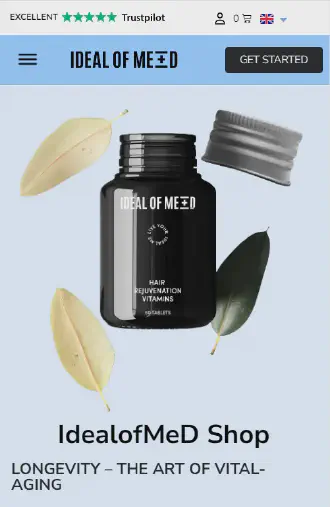What is Spirulina? Spirulina is a blue-green algae that grows in warm, alkaline fresh waters around the world, and is recognised to be the most complete food source known. It is one of the few plant sources of vitamin B12, and is rich in protein, vitamins, minerals, and antioxidants. This ‘superfood’ has an amazing array of nutrients, and the highest protein content of any natural food. Spirulina is a type of cyanobacteria. Just like plants, cyanobacteria produce energy from sunlight via photosynthesis. Originally consumed by the Aztecs it was researched by NASA in the 1960’s as a dietary supplement for astronauts due to its rich nutrient profile. How will Spirulina benefit me? It is a great source of antioxidant phycocyanin, an accessory pigment to chlorophyll. Phycocyanin also provides anti-inflammatory protection, and neuroprotection as well as antioxidant support. Spirulina is nutrient-rich, dietary supplement. It is a high source of protein, up to 70% and a good source of beta-carotene and various minerals. Spirulina is also a natural source of omega 3 fatty acids. The nutrient-rich profile makes spirulina an excellent choice for the maintenance of overall health. Spirulina is also rich in essential fatty acids, carotenoids and a full spectrum of minerals like calcium, iron, magnesium, manganese, potassium and zinc. It is a source of eight essential amino acids, as well as minerals, chlorophyll, natural plant sugars, trace minerals and enzymes. It contains nutrients including B complex vitamins, beta-carotene, and vitamin C and E. Spirulina is recognised to be the most complete food source known. Spirulina contains 60-70% protein, compared to white fish which has 25% protein, chicken (25-30%) or lean beef (23%). It is a source of eight essential amino acids, as well as minerals, natural plant sugars, trace minerals and enzymes. Spirulina contains many times more Beta Carotene than papaya or carrots, more iron than spinach or beef liver. It is the rich












![L'Oréal - Revitalift Filler [HA] Night Cream 50 ml](https://avmedia.ams3.cdn.digitaloceanspaces.com/5/51/55106b1b-a198-4bb9-8d2d-1350191b3f9b.jpg)



